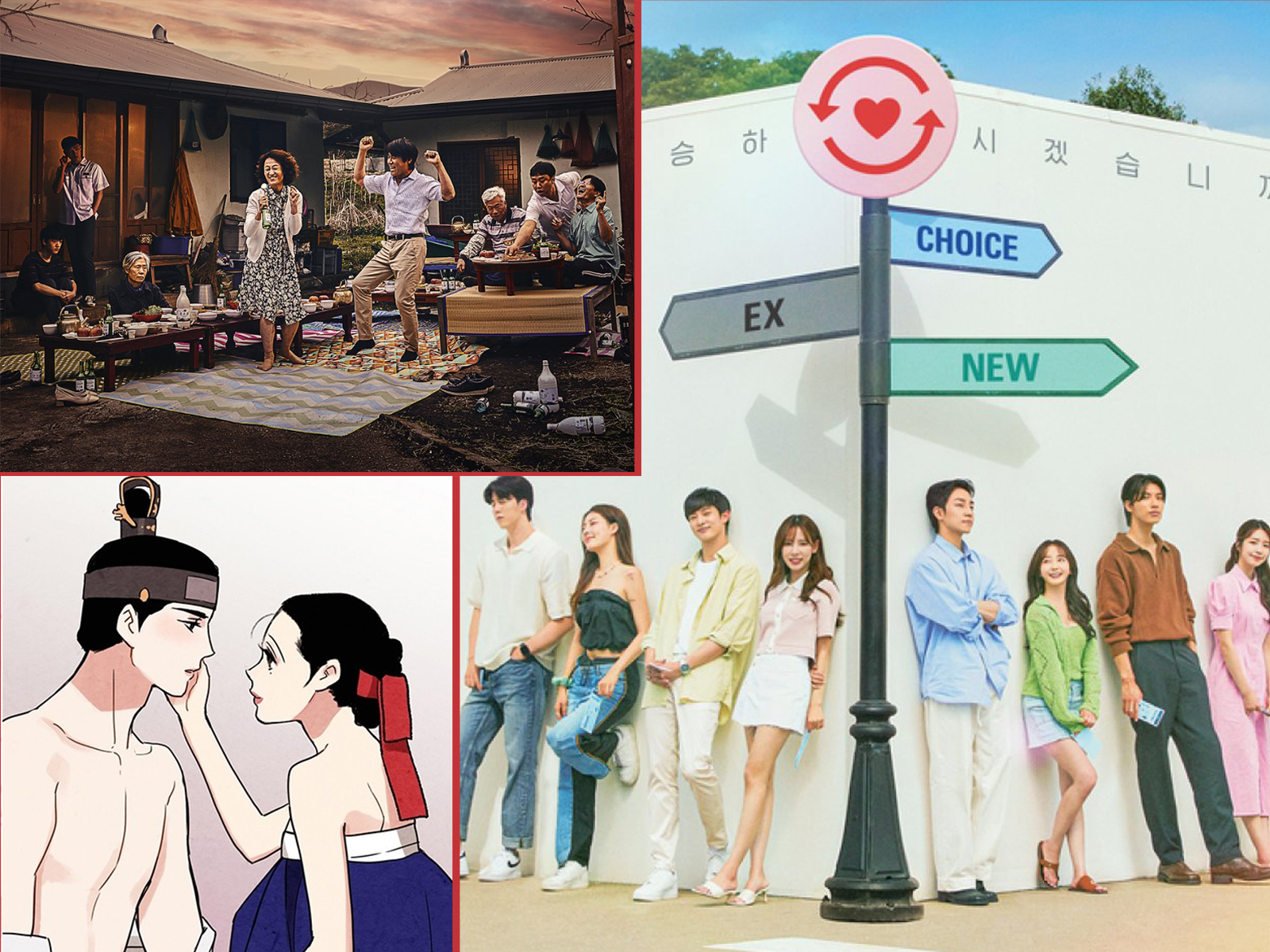
- Industry
Korean Programming after “Squid Game”
Following the worldwide success of Squid Game, unsurprisingly, interest in Korean content has exploded on the big and small screen establishing its place as a viable force in the world market. Variety Streaming Room hosted a panel of TV executives to discuss new programming in the ever-evolving state of the Korean entertainment industry and their mission to broaden their reach to international markets.
The panel was composed of Ms. Haewon Chin, Global Business Director of MBC, Korea’s leading TV and radio network, Mr. Iljoong Kim, Executive Director of SBS Entertainment Headquarter Global Content, Senior Director of FormatEast, Mr. Jinwoo Hwang, President of Something Special which works across both unscripted and scripted genres and acts as Korea’s first-ever TV format specialty agency, and Senior Sales Manager Mr. Albert Park of CJ E & M, cable TV network which crosses many genres including reality and music.
“We have two new shows,” announces Chin. “Hunted is a weekly drama set in a peaceful village until one day when a boar starts coming from the mountains ruining the crops. The main character, who won the lottery, goes into the mountains to hunt boar but realizes that the animal he shot could have been human. That night he learns his son is not coming back home. He falls into despair that he may have shot his son.” Another show, The Forbidden Marriage, is a historical romantic comedy. It’s a fictional story about a young king whose fiancée dies from a sudden illness. Grief-stricken; he refuses to get married. In Korean history, when the king is not married none of the villagers can marry until he finds a woman because the king must pick the best one. Finally, after seven years of no one getting married in the village, a matchmaker goes to the palace and becomes the maid of the king. She tells him his deceased fiancée is in her and they begin a relationship.”
Park weighs in on one of the hit shows on CJ E & M. “EXchange was one of the most successful dating reality format shows that aired last year on one of our OTT platforms called TVING,” he says. He explains the premise: “We invite four ex-couples into a house, and they are told to stay, but the identity of their exes aren’t revealed. At the end, there’s a final choice that needs to be made, whether they will go back to their previous relationship with their exes or find a new love. And we’re currently on season two and it’s also doing really well on TV.”
Hwang says of how the landscape of Korean TV has changed, “I think the international appeal is vital these days because we all know that content creation is no longer just about domestic viewers. So nowadays, when we do a development or even a production deal, we always have to consider that any show can also be approached to the international viewers, and not only limited to Korean audiences. That’s why you have to think more universal at the same time. All the new ideas have to be in line with the same trend that international viewers want to see on their own platforms.”
Hwang continues “Something Special has five new shows in co-development with international companies. Soon we will have an even more universal approach with international perspectives.”
The phenomenon of Squid Game, which contributed massively to put Korea on the map, particularly in terms of original material, was an effective springboard to more content. Park offers, “After the success of Squid Game, I’m seeing more and more demand for social experiment shows. We had a show called The Genius Game, which was a bit niche, maybe hard to follow, but now the demand for that kind of format is coming back,” he explains. “So, we are optioning to a lot of different countries, and more and more we are seeing this scripted and unscripted blended programming.”
Hwang adds, “Squid Game opened more opportunities not only for the Korean producers and talent but for international producers around the world. Nowadays local concepts have much more global appeal. I think this is the best time for creativity and to present newly developed shows.”
Chin concurs. “Squid Game made people look more into the Korean series. So, for the people who haven’t known much about Korean content, now they know about it. The theme was a little uncomfortable, but, the story itself was very gripping and it was a very well-made drama series. So, it is valuable that people start watching it and it is time for us to continue with the other genres and other content. It was very positive that Squid Game earned a reputation internationally.”
Park sums it up, “We surely don’t want this to be a one-shot opportunity, and I do agree that Squid Game opened a lot of doors, not only for the experienced creatives or directors but even a lot of opportunities for new up and coming creatives and writers. So, I think it’s a healthy consequence,” he says. “I think that it’s our job now to work with all these talented young and upcoming creatives to really put out a show that is on parallel to Squid Game.”